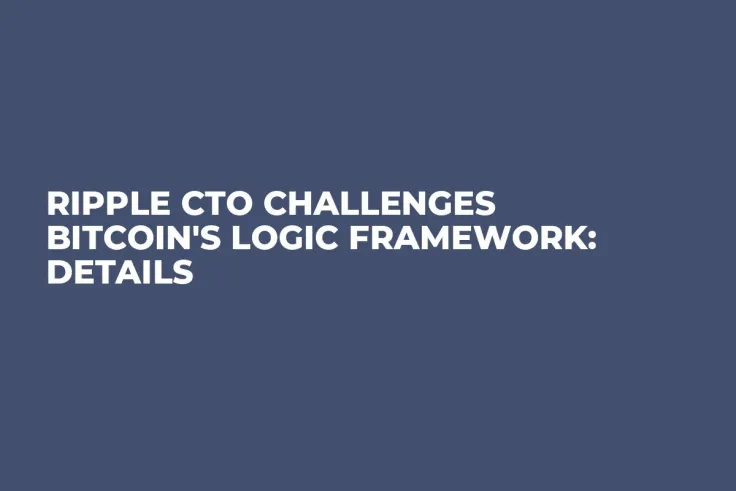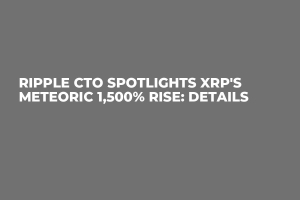
Disclaimer: The opinions expressed by our writers are their own and do not represent the views of U.Today. The financial and market information provided on U.Today is intended for informational purposes only. U.Today is not liable for any financial losses incurred while trading cryptocurrencies. Conduct your own research by contacting financial experts before making any investment decisions. We believe that all content is accurate as of the date of publication, but certain offers mentioned may no longer be available.
Ripple's Chief Technology Officer David Schwartz has stepped into a thought-provoking discourse that hinges on the control of hash power within the BTC network.
In response to tweets, Schwartz offers a new perspective, questioning the logic that the majority of hash power determines who gets to use the name "Bitcoin."
An X user, "Curtis Ellis," shared on X what he refers to as "BTC logic": that the majority of hash power decides who gets to use the name Bitcoin and that users must run a full node so they only follow the hash power that runs the rules that they choose.
To put things in context, participants, or the computers that maintain the Bitcoin blockchain, are known as nodes, classified into full and miner nodes.
Full nodes get and store an entire blockchain copy on them, ensuring that blocks and transactions follow network rules by validating them. Full nodes are essential to the integrity and security of the Bitcoin network.
The Nakamoto consensus has served as the backbone of the Bitcoin network, and one of its key components is the longest chain rule. When competing chains occur on a network, the longest chain rule declares the chain with the highest total computing effort to be the legitimate blockchain.
The Ripple CTO, however, brings a fresh perspective to the Bitcoin discussion, questioning whether the majority of hash power indeed confers the authority to define what "Bitcoin" is.
"Do you think a rational user says I want whatever is called bitcoin, whether it's good or bad, honest or corrupt? The former is how you tell what is bitcoin and the latter is how you get what you actually want," Schwartz queried.
Schwartz cites the scenario of the Bitcoin cash hard fork from Bitcoin. Bitcoin Cash is a hard fork of Bitcoin, whose split took place in 2017.
He added, "When the BTC/BCH fork happened, rational users didn't say, I want whichever side is called bitcoin afterward. The rule for how to tell which side is bitcoin doesn't tell users which side they want to be on or get them on the side they want."
While the discussion continues, the Ripple CTO's intervention brings a nuanced perspective, challenging the community to think critically about the principles that underpin the ecosystem.

 Godfrey Benjamin
Godfrey Benjamin Tomiwabold Olajide
Tomiwabold Olajide Arman Shirinyan
Arman Shirinyan Gamza Khanzadaev
Gamza Khanzadaev Yuri Molchan
Yuri Molchan